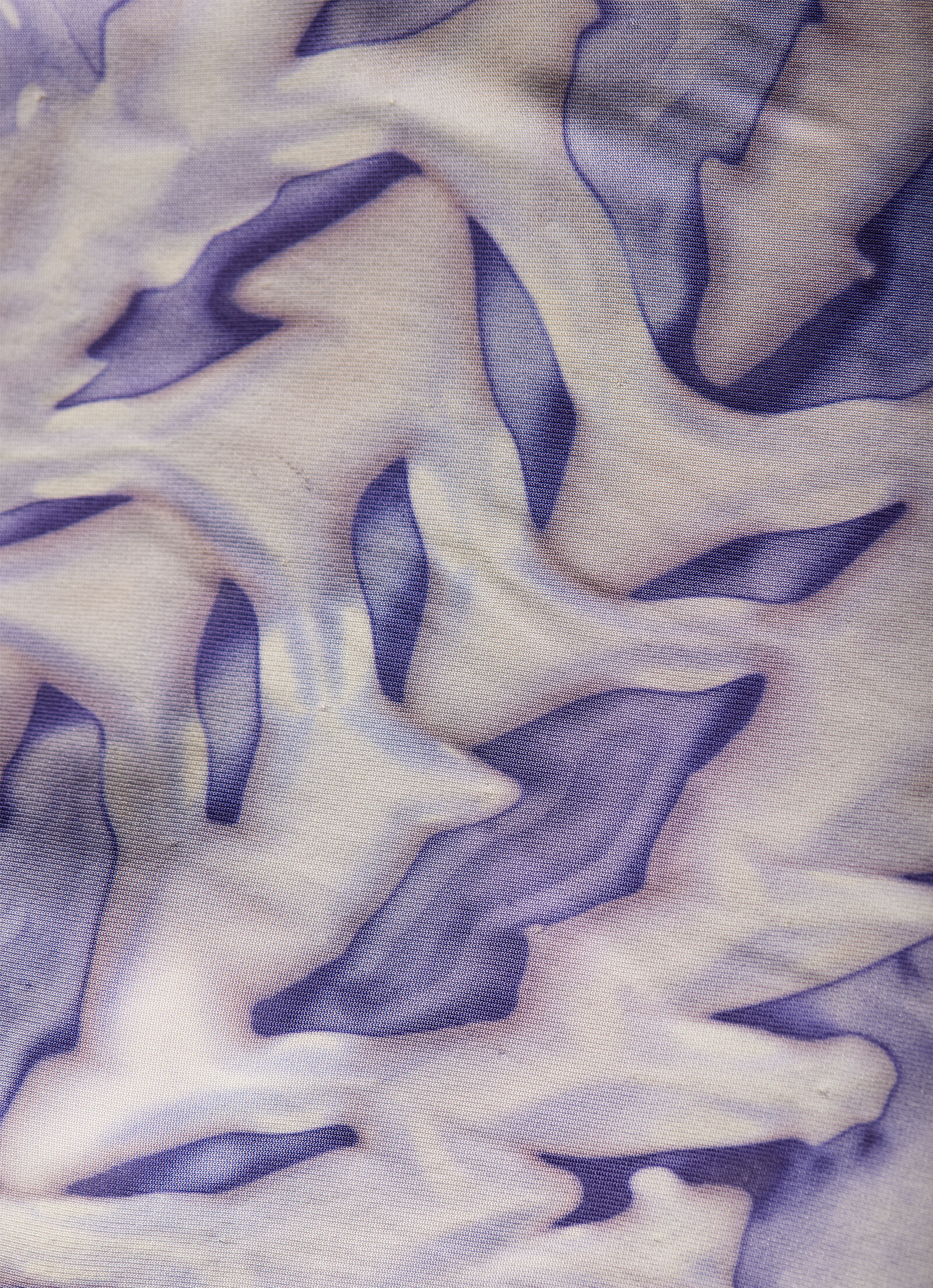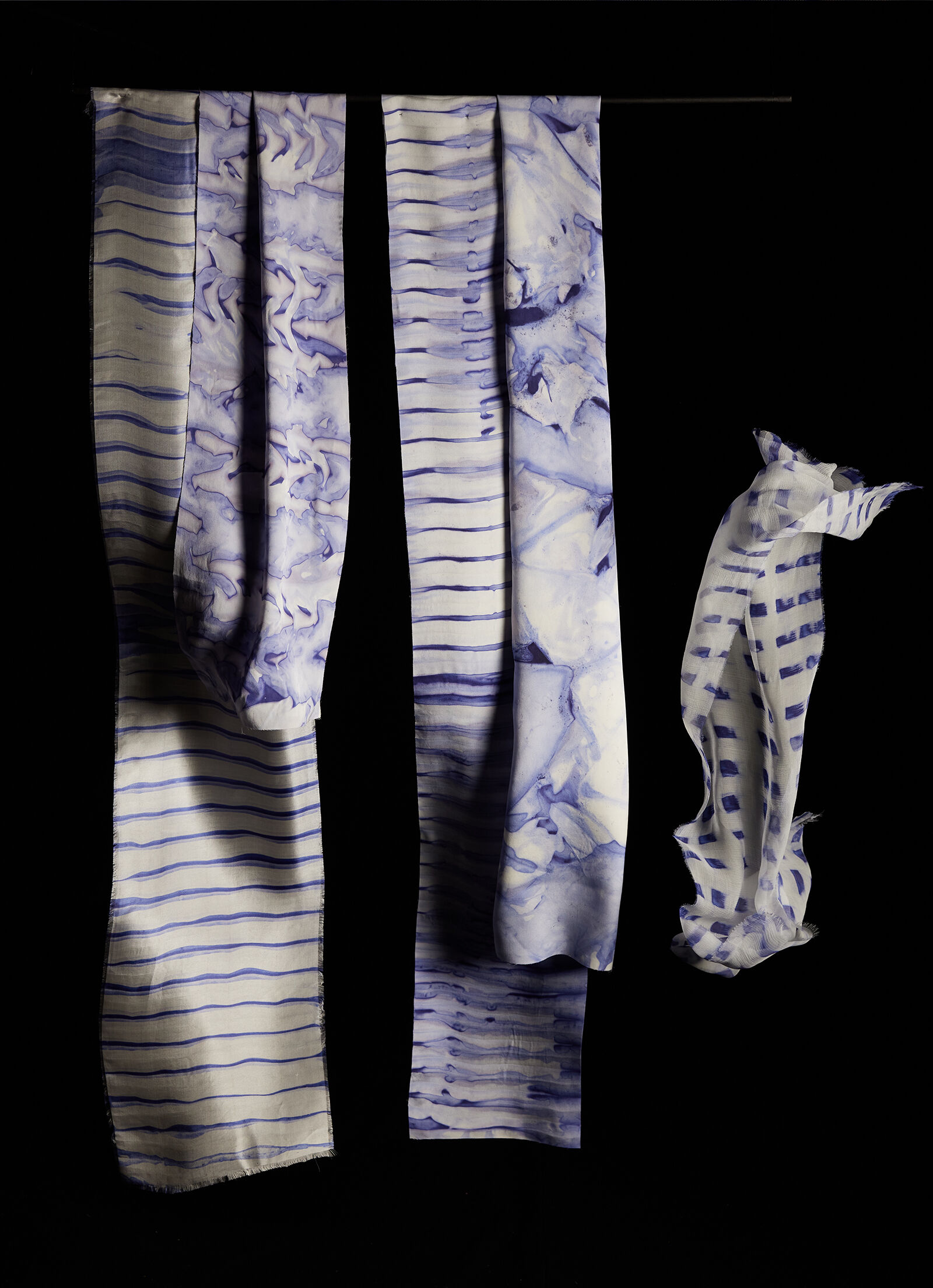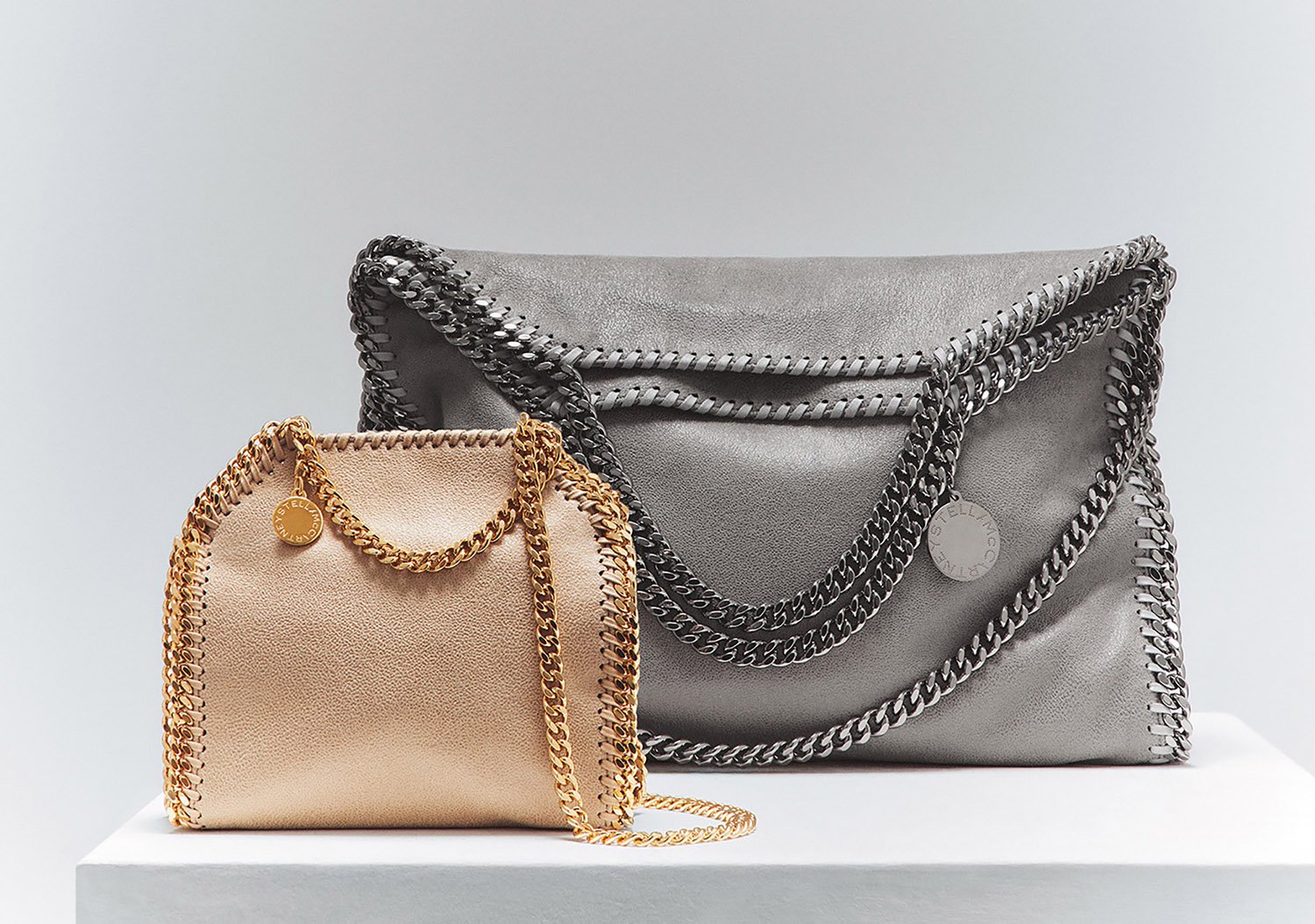Maison 0: Designing a more sustainable future
Maison/0 is an LVMH initiative that intends to harness the power of collaboration between a multiplicity of talents from various different backgrounds to design a better, brighter and more sustainable future. Introduced in 2021, its mission is to prototype emergent and disruptive design concepts that can lead to the restoration of planetary health, aligned with the LVMH LIFE 360 environment strategy. Below are two of the projects it supports.
Automating Violacein
Charlotte Werth, Designer in Residence for Maison/0, has been researching bacteria dying processes for over 6 years. Using a nutrient bath to feed the bacteria, Werth then adds it to the fabric.
Once in contact with oxygen, the bacteria begin to grow and populate, turning a cloudy yellow colour – thus, the perfect environment for producing pigment is created. Werth applied these learnings to a Bacteria Dye Machine designed to slowly move fabrics through the live bacterial bath, pausing long enough to allow for pigment depositing. A low-energy built-in UV lighting system sterilises the cloth as it enters and exits the main chamber, leaving behind only colour traces created by Janthinobacterium lividum.
By playing with folding, pleating, resist techniques and multiple dye run throughs, Werth has produced a collection of scarves printed with unique patterns on luxury deadstock fabrics using this method.
This microbial research has evidenced clear environmental benefits, in comparison with synthetic dyes, including significant water savings, energy and chemical use reduction, biodegradability and applications across fibre types, without the need for toxic mordanting.
Rewilding Textiles
Launched in 2022, Rewilding Textiles – Maison/0's first R&D project – is a free publication that aims to provide an entry point for designers into the world of regenerative design.
In collaboration with The Sustainable Angle and the environmental team at LVMH, Maison/0 sourced a range of regenerative materials to celebrate textile farmers and suppliers who have transitioned to regenerative agriculture, each using ancestral, indigenous and contemporary techniques that restore biodiversity and draw down atmospheric carbon.
Whilst textiles grown in regenerative farming systems offer nature-positive solutions for fashion, their environmental benefit is compromised by the use of synthetic dyes. This initiative hopes to solve that, supported by a publication positioning the values of regenerative farming and nature-based approaches to designing textiles.
Aiming to design a collection of printed and knitted textiles that align colouring processes with the positive impact of regenerative agriculture on biodiversity and climate, the project will use bacteria, algae and food waste as potential bio-circular alternative dye sources, replacing synthetic options.
Through showcasing how design informed by nature can activate new, bio-informed approaches to textile coloring, design-led research can speed up change.







